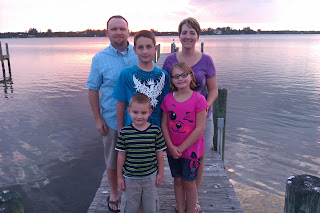William Tyndale - October 6th, 1536
How many
Bibles do you have in your house? For most of us, Bibles are easily accessible,
and many of us have several. That we have the Bible in English owes much to
William Tyndale, sometimes called the Father of the English Bible. 90% of the
King James Version of the Bible and 75% of the Revised Standard Version are from
the translation of the Bible into English made by William Tyndale, yet Tyndale
himself was burned at the stake for his work on this day, October 6, 1536.
Back in the
fourteenth century, John Wycliffe was the first to make (or at least oversee)
an English translation of the Bible, but that was before the invention of the
printing press and all copies had to be hand written. Besides, the church had
banned the unauthorized translation of the Bible into English in 1408.
Over one
hundred years later, however, William Tyndale had a burning desire to make the
Bible available to even the common people in England. After studying at Oxford
and Cambridge, he joined the household of Sir John Walsh at little Sudbury
Manor as tutor to the Walsh children. Walsh was a generous lord of the manor
and often entertained the local clergy at his table. Tyndale often added spice
to the table conversation as he was confronted with the Biblical ignorance of
the priests. At one point Tyndale told a priest, "If God spare my life,
ere many years pass, I will cause a boy that driveth the plough shall know more
of the Scriptures than thou dost."
It was a
nice dream, but how was Tyndale to accomplish this when translating the Bible
into English was illegal? He went to London to ask Bishop Tunstall if he could
be authorized to make an English translation of the Bible, but the bishop would
not grant his approval. However, Tyndale would not let the disapproval of men
stop him from carrying out what seemed so obviously God's will. With
encouragement and support of some British merchants, he decided to go to Europe
to complete his translation, then have it printed and smuggled back into
England.
In 1524
Tyndale sailed for Germany. In Hamburg he worked on the New Testament, and in
Cologne he found a printer who would print the work. However, news of Tyndale's
activity came to an opponent of the Reformation who had the press raided.
Tyndale himself managed to escape with the pages already printed and made his
way to the German city Worms where the New Testament was soon published. Six
thousand copies were printed and smuggled into England. The bishops did everything
they could to eradicate the Bibles -- Bishop Tunstall had copies ceremoniously
burned at St. Paul's; the archbishop of Canterbury bought up copies to destroy
them. Tyndale used the money to print improved editions!
King Henry
VIII, then in the throes of his divorce with Queen Katherine, offered Tyndale a
safe passage to England to serve as his writer and scholar. Tyndale refused,
saying he would not return until the Bible could be legally translated into
English. Tyndale continued hiding among the merchants in Antwerp and began
translating the Old Testament while the King's agents searched all over England
and Europe for him.
Tyndale was
finally found by an Englishman who pretended to be his friend but then turned
him over to the authorities. After a year and a half in prison, he was brought
to trial for heresy -- for believing, among other things, in the forgiveness of
sins and that the mercy offered in the gospel was enough for salvation. In
August 1536, he was condemned; on this day October 6, 1536 he was strangled and
his body burned at the stake. His last prayer was "Lord, open the King of
England's eyes." The prayer was answered in part when three years later,
in 1539, Henry VIII required every parish church in England to make a copy of
the English Bible available to its parishioners.
- christianitytoday.com



















